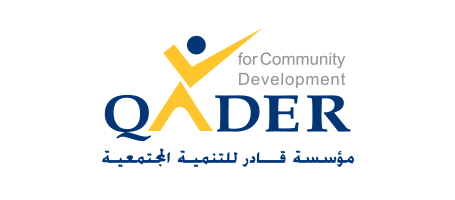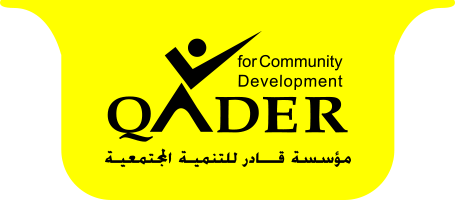National Conference on the Health Rights of Persons with Disabilities

National Conference on the Health Rights of Persons with Disabilities
Health Rights: Between Weak Political Will, Lack of Governance and Living Conditions
Wednesday, July 20th 2022, Ramallah
Health rights, in their holistic sense, represent one of the most sensitive top priority social, economic and cultural rights, as they are linked to the most sacred right, namely, the right to life. They are one of the rights that comprise the basic rules on which the opportunities and possibilities of enjoying other rights are based, such as the right to access, non-discrimination and legal capacity and so on.
Perhaps it is realistic to say that persons with disabilities, as is the case in all fields and sectors, are among the most excluded groups and most affected by the fragility of the health system and its lack of an inclusive and human rights approach in providing health services in all its forms and levels; not to forget, the limited programs and services that the Palestinian Ministry of Health allocates in response to the health rights of persons with disabilities; and the ones it makes available are based on a purely medical model. This inevitably causes the emergence of many problems and challenges that threaten the lives of persons with disabilities in the absolute sense and in the sense of quality of life in a way that preserves their dignity and enables them to live independently and invest in their various capacities to the maximum.
Despite the weakness of the policy framework regulating the health rights of persons with disabilities in Palestine - which has long been represented by a state of inconsistency between different laws and their lack of systematization, enactment, monitoring and accountability - yet the government health insurance system for persons with disabilities No. 2/2021 represents a paradigm shift in this regard, whether at the conceptual level or at the inclusiveness level, as well as at the level of the obligations it placed on the Palestinian Ministry of Health, and at the monitoring and accountability level. However, until now, there are still many problems that characterize the operations of the system, which can be summarized as follows:
- Until now, despite the fact that the health insurance system includes the definition of persons with disabilities as stated in the United Nations Convention on the Rights of Persons with Disabilities, and despite its stipulation that disability represents the eligibility criteria that qualify persons with disabilities to obtain their entitlements stipulated in the system, the process of identifying persons with disabilities is still based on old references and protocols that at best belong to the medical model. This leaves the issue of the eligibility criteria as an entry point for obtaining a health insurance card, an issue that requires processing and serious participatory work, leading to the development of references and protocols for diagnosing and evaluating disability that take into account the interaction process between persons with sensory, motor, intellectual and psychological difficulties, and the totality of environmental, institutional and societal barriers and obstacles. It is worth noting that this problem is not only an obstacle to obtaining a government health insurance card, but it is also one of the obstacles and barriers that separate persons with disabilities from many of their other rights, especially that the diagnosis and evaluation of disability is an entry point for many entitlements, including health rights.
- The health insurance system includes a number of provisions to which non-compliance constitutes an obstacle to obtaining many of the services that the system recognizes as entitlements for persons with disabilities, such as disability-related medications, medical supplies and consumables, nutritional supplements, rehabilitation services, and assistive devices. Examples of these provisions include the formation of the Medicines related Purchase Committee, and the Multidisciplinary Committee to determine the needed rehabilitation services and assistive devices. While the failure to form these committees constitutes an obstacle to the implementation of a number of articles, such committees are considered one of the forms of systematization that must be provided in any public policy to ensure their professional and orderly implementation.
- Contrary to the Palestinian Rights of Persons with Disabilities Law No. 4 of 1999 and other laws that highlight some of the rights of persons with disabilities, such as the Labor Law, the Civil Service Law, and the Education Decree by Law, this health insurance system contains a set of provisions that represent central rules for controlling governance, monitoring and accountability processes, such as establishing a database and the obligation to appoint judicial officers, the complaints system and its conditions, as well as other elements of governance and accountability. However, to date, none of these provisions have been implemented by the relevant units and departments of the Palestinian Ministry of Health.
- Until now, we have not witnessed the Ministry of Health making the necessary efforts aimed at translating the health insurance system into measures, protocols and mechanisms in a professional and participatory atmosphere, transparently involving all relevant experienced parties, with evidence that the greater goal is manifested in achieving the public interest.
- Persons with disabilities in Gaza Strip still lack the minimum of their health rights, even at the policy level. Due to the factional division of the political system in all parts of the country, the provisions of the government health insurance system for persons with disabilities No. (2) /2021 do not apply to relevant official authorities in Gaza Strip, especially the Palestinian Ministry of Health. This makes the disability movement lose the necessary policy tools in their advocacy work, and keeps health rights out of the list of priorities.
Based on the aforementioned as well as other indications of historical exclusion, and the evasion of many official institutions from fulfilling their obligations towards the rights of persons with disabilities, to date, only 18,000 persons with disabilities have a health insurance card. In addition, there are many persons with disabilities who do not obtain a health insurance card because of the degree of disability, contrary to what is stipulated in the system. Not to mention the deep vulnerability that characterizes the health services that the Ministry is committed to providing to persons with disabilities. This requires that all parties, including the Palestinian Disability Coalition and other bodies that practice advocacy work, to intensify their efforts in order to ensure the implementation of the health insurance system and improve the enjoyment of persons with disabilities of their preventive, diagnostic, curative and rehabilitative health rights.
This conference represents an opportunity to build a dynamic and interactive model through which practical visions and policy proposals can be presented for translating the system into services and operational measures and mechanisms.
Conference Themes
First: The status of the enjoyment of persons with disabilities of their health rights, with regards to the obligations and provisions stipulated in the government health insurance system for persons with disabilities.
This may include a presentation of the results of monitoring operations, and visual media reports that reflect live issues related to the challenges faced by persons with disabilities when seeking to benefit from the health insurance system, and the set of indications resulting from failure of the system implementation, including deterioration of health conditions or loss of life...etc. (focusing on obtaining the health insurance card and related entitlements).
Second: Policies, measures and procedures that ensure the protection and promotion of the health rights of persons with disabilities. This may include a number of issues, the most important of which include:
- The grounds on which the diagnosis and evaluation of disability are based for the purpose of obtaining various benefits, including the health insurance card. (Eligibility criteria: a comparative approach between the references which Palestine and other countries adopt and the other references that are closest to the social and human rights model of disability).
- How the health rights of persons with disabilities are ensured in other countries, in terms of policies, regulations and procedures. This is expected to provide information on the policies and regulations regulating health rights in terms of their nature, duty bearers, referral mechanisms and purchase of services/partnerships between different sectors, the practicality of reaching those unable to reach health service providers, the administrative and financial measures that ensure accessibility of facilities, services, information...etc.
Third: Governance and systematization, as stated in the government health insurance system for persons with disabilities No. (2) / 2021, and as motivators for the implementation of the health insurance system. This is manifested in the following:
- Perceptions regarding the process of implementing the articles concerned with monitoring through the appointment and activation of judicial officers, the complaints system, the multidisciplinary committee and any other instructions or measures.
- The challenges of full and effective participation of persons with disabilities in decision and policy making that concern them, as stated in the United Nations Convention on the Rights of Persons with Disabilities, specifically in Articles 4, 29 and 33, with regards to the risks of exclusion in decision-making processes related to the implementation of the government health insurance system No. 2 / 2021.
QADER for Community Development and the Palestinian Disability Coalition (PDC) cordially invite and urge researchers and professionals from Palestine and the Arab Region, to submit an abstract (no more than 250 words) of their paper together with the CV, no later than May 25th 2022, by email: [email protected]
The conference committee will review the received abstracts and approve those which are aligned with the conference objectives, themes, and quality benchmarks.
Complete papers should be submitted no later than June 25th 2022.
All documents should be submitted in word format.
Selection criteria for paper presentations
The conference organizers seek to have this initiative seriously embody a true opportunity for advancing the reality of the health rights of persons with disabilities in Palestine at the policy and operational levels, based on an understanding of the Palestinian context on one hand, and allowing any stimuli to provoke this reality, in order to achieve the necessary progress in advancing the health rights of Palestinians with disabilities, on the other. Accordingly, the conference paper presentations must meet the following criteria:
- The paper presentations must rely on the approach that combines the social model and the human rights perspective on disability, which is based on acknowledging the different types and degrees of difficulty as one of the elements that shape the disability experience, as well as a set of environmental, societal, institutional and policy obstacles that have a deeper impact on shaping that experience.
- The paper presentations must adopt the scientific and practical approach in the construction of papers, so that the means of employing the academic reservoir are manifested in the development and adoption of policies, regulations and measures that would ensure and protect the health rights of persons with disabilities.
- The paper presentations must contain policy and operational proposals that could be useful in the Palestinian context in relation to the health rights of persons with disabilities, with the need to take into account the fact that Palestine is still under the Israeli occupation, which necessitates the compliance of any measures with the rules governing work in emergency situations whenever necessary, without discrimination on the basis of disability.
- The paper presentations must avoid unnecessary verbosity in narration and stick to clear and easy-to-understand language.
- The paper presentations must adhere to scientific and professional standards, especially with regard to the development of proposals as well as documentation.
Conference Language
Arabic, English interpretation is available
For any inquiries regarding the conference, please contact us at: [email protected]

